Peta Credlin: Six minutes hold key to hotel quarantine scandal
The quarantine inquiry left too many questions open and we are still no closer to finding out who was accountable within the Victorian government. Peta Credlin takes a look at the six minutes that changed Victoria and led to nearly 800 deaths.
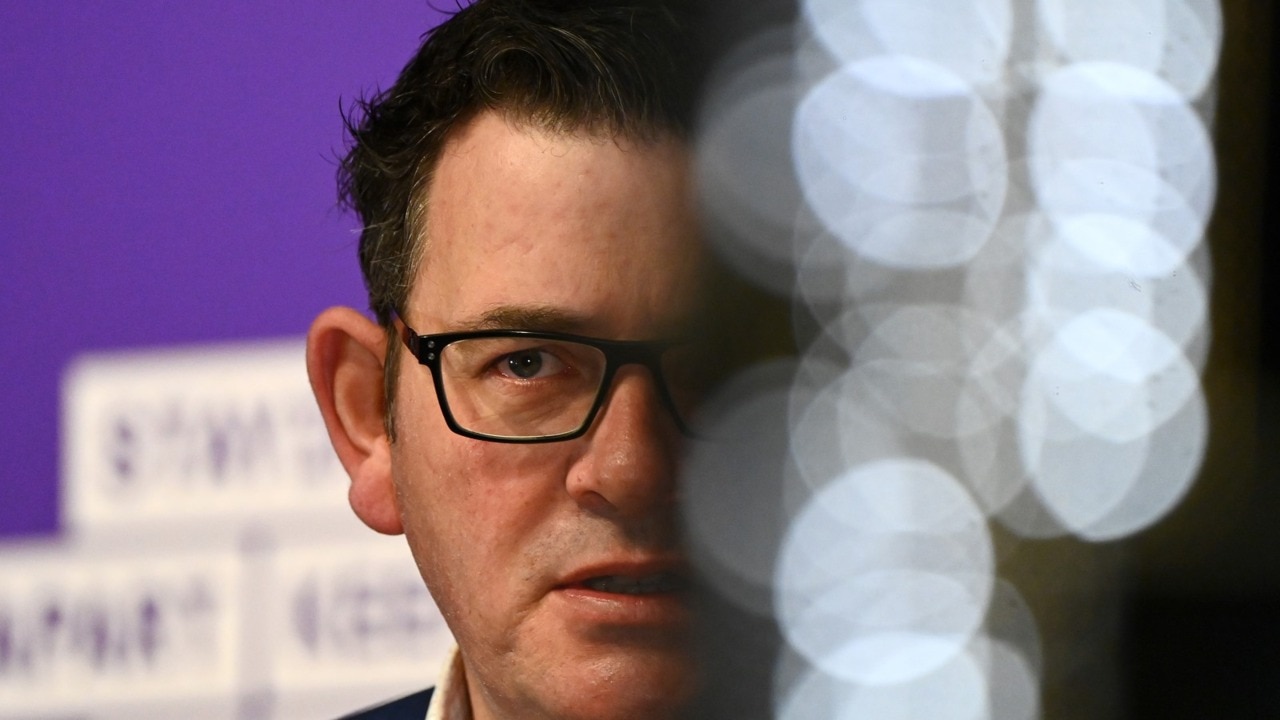
Opinion
Don't miss out on the headlines from Opinion. Followed categories will be added to My News.
- Art of political trickery: Dan Andrews is a master of spin
- Democracy is dead as premiers play pandemic politics
When more than 800 people die because of a bad government decision, “I don’t know” or “I can’t remember” just aren’t good enough.
For months now, Victoria’s Hotel Quarantine Inquiry has sought to find out who made the fateful decision to put the security arrangements for returning travellers in the hands of untrained private bouncers.
Because someone did. These things don’t happen of their own volition – especially as in every other state, hotel quarantine was run by the police and military and, unlike in Victoria, no one died because the job was botched.
But as dozens of officials and ministers have fronted former justice Jennifer Coate, nobody has accepted responsibility and explained what happened. But the facts speak and here’s what we do know.
On Friday, March 27, the national cabinet consisting of the Prime Minister, premiers and chief ministers decided that all travellers returning to Australia would face a fortnight of mandatory hotel quarantine.
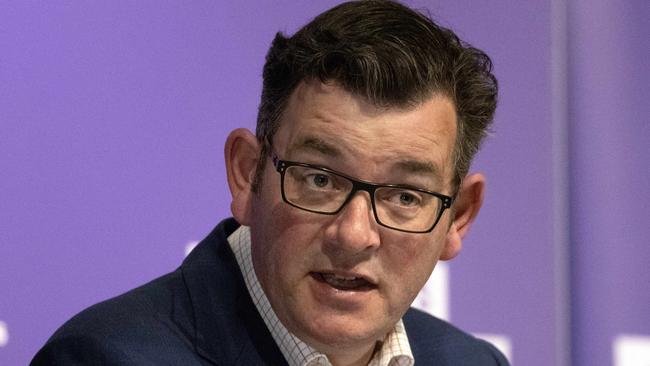
The actual running of hotel quarantine would be a matter for each state but the PM offered Australian Defence Force help to each state and territory, saying at his media conference about 2.20pm that day from Canberra, that “the ADF will be there to put boots on the ground, to support them in their enforcement efforts, and I thank the ADF for their great support in turning up to this task”.
MORE FROM PETA CREDLIN:
Weak and cowardly leaders hiding behind bureaucrats
We can’t eliminate it, so we need to learn to live with COVID-19
From the moment national cabinet decided this course of action, Victoria was scrambling to get its act together. The plan for forced quarantine of travellers happened on the hop.
Indeed, Chris Eccles, the Secretary of the Department of Premier and Cabinet, who was alongside his Premier, Daniel Andrews, on the national cabinet hook-up actually left the meeting at one stage to get the ball rolling, tasking a colleague with sourcing hundreds of hotel rooms such was the urgency.
About 1pm, the national cabinet meeting broke up, and according to evidence to the inquiry, that’s when the official note-taker started the job of contacting all ministers impacted by the decision, to let them know the outcome.
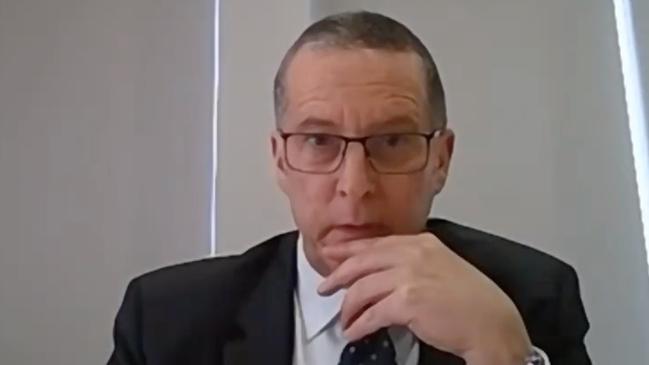
It didn’t take long for the word to get out. Within 10 or so minutes, then-Victoria Police chief commissioner Graham Ashton learnt of national cabinet’s decision. As he told the inquiry under oath:
“I believed that these people would still be at that point in time … the subject of commonwealth responsibility.”
But he must have quickly realised that some were thinking of involving Victoria Police and ADF in the operation, because at 1.12pm, he shot off a text to the Australian Federal Police Commissioner, Reece Kershaw, asking this question:
“Mate. Question. Why wouldn’t AFP guard people at the hotel?”
Clearly vexed that Victoria Police might have to do it, without waiting for a response back from the AFP’s Kershaw, Ashton fired off another text at 1.16pm, this time to the Premier’s top public servant, Eccles:
“The suggestion is that Victorian arrivals are conveyed to a hotel somewhere where they are guarded by police for 14 days. Are you aware of anything in this regard??”
Remember all of this was happening in the immediate 15-20 minutes after the national cabinet hook-up had concluded.
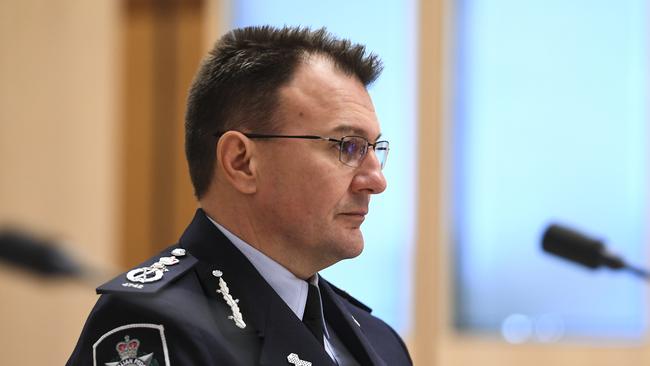
In evidence to the inquiry, there was no text reply from Eccles to Ashton’s text. But Ashton must have learnt something over the next six minutes because, critically, at 1.22pm, Ashton sent a further text to the AFP’s Kershaw with this key message:
“Mate my advice is that ADF will do passenger transfer and private security will be used.”
At 1.31pm, Kershaw responds back to Ashton:
“OK that’s new.”
And at 1.32pm Ashton sent Kershaw a further text:
“I think that’s the deal set up by our DPC (meaning Department of Premier and Cabinet).”
In his initial statement to the inquiry, Eccles had said nothing about his 1.16pm text message from Ashton.
It was only after Ashton had submitted his own written statement, detailing the text from him to Eccles, that Eccles lodged a supplementary statement.
In it, he said that he does not recall getting Ashton’s 1.16pm text and does not recall whether he called Ashton at this time. Further, he said that “no such decision” – to use private security – “had been made by me or anyone to whom I had spoken”.
But clearly a decision to use private security had been made because at a media conference at about 3.15pm that afternoon, the Premier specifically said that “police, private security, all of our health team” would be used.
Those words are specific, they were deliberate, and this is the first public mention of “private security”; I also know that political leaders, such as premiers and prime ministers, carefully prepare for their media appearances.
There is no doubt from evidence to the inquiry that the decision to use private security must have been made between 1.16pm when Ashton sent his text to Eccles querying the use of Victoria Police in hotel quarantine, and 1.22pm when he sent his text to Kershaw telling him that it all resolved “in a deal set up by our DPC” that private security would do the job.
The question is – who made this decision?
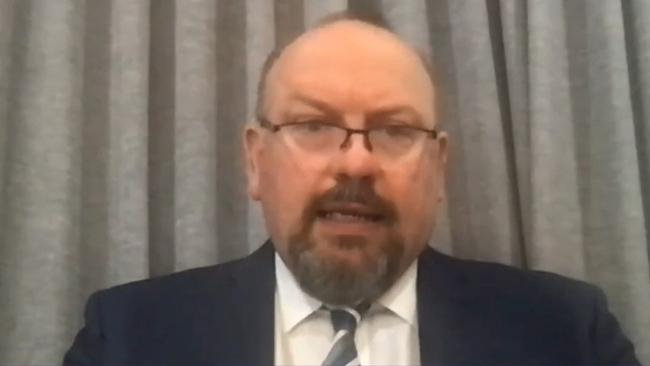
After almost two decades inside senior government offices, including the prime minister’s office, I know this: that the decision to substitute Victoria Police with private security can only have been made by someone with sufficient authority in the government, for the police chief commissioner to have been reassured almost immediately, that his officers were no longer expected to man hotel quarantine.
These are the six minutes that changed Victoria and led to nearly 800 deaths.
In his testimony to the inquiry, Ashton insisted that he couldn’t remember where he “got that advice from”.
Conveniently, the phone records tendered to the inquiry by Ashton are not full and complete phone records; they’re merely billing records which disclose outgoing calls but not incoming ones.
For instance, if Ashton had received a call from Eccles or anyone else in response to the text he had sent him at 1.16pm, no such call would appear on any billing record.
Or if, for example, coming out of national cabinet, Eccles had looked at his phone, saw a text from an agitated Ashton that police might be “babysitting” quarantined travellers and showed that message to someone, hypothetically, the Premier’s chief of staff, let’s say, and she called back Ashton, again this incoming call would not appear on Ashton’s bill.
That’s because this inquiry might be being presided over by a former judge but it is not a full judicial inquiry. It doesn’t have the power to compel witnesses to appear, nor can it subpoena records.
If it could, like a royal commission, it would be able to seek access to the full phone records of all key witnesses from the police chief right up to the Premier – both the outgoing and, critically, incoming calls.
It’s also apparent that the inquiry has not adequately probed the use of other messaging apps (Signal, Confide, WhatsApp). The inquiry only has what some witnesses have willingly handed over; some not all, and then not even full records.
For all the days and days of testimony, the question the inquiry doesn’t seem to have yet pursued is this – who in the Victorian government would have been senior enough, powerful enough, to have been able to decide in the crucial six minutes between the police commissioner’s text asking the Premier’s top bureaucrat, in essence, “what’s going on?”, and the police commissioner then texting his counterpart in Canberra, making it clear that private security, not police, would be in charge of hotel quarantine.
In other words, who is important enough to make that sort of decision in six minutes flat?
In his testimony to the inquiry Daniel Andrews was asked:
“Are you aware of any circumstances that might have been a basis for Mr Ashton to have received that information or received that impression that a decision had been made?”
He said “no, I’m not aware of anything personally that would have … given rise to Graham Ashton drawing those conclusions”.
The “personally” could well be important; it could read as though he has an idea of where the decision came from but that personally he wasn’t there at the time it was made.
Eccles, too, was asked: “Are you aware of any involvement by the DPC as at about 1.30pm in setting up what were going to be the details of the enforcement arrangements in Victoria?” Despite the text from Ashton to the AFP’s Kershaw saying private security would be used, in “a deal set up by our DPC”, Eccles, the head of DPC replied, “I’m not aware”.
Given how much the decision to use private security in Victoria’s hotel quarantine system all centres on this critical six minutes, I am surprised that the inquiry has not sought the complete phone records, incoming and outgoing, mobile and landline, of all key players in this catastrophe that’s costs hundreds of lives and hundreds of thousands of livelihoods.
I am also very surprised that the inquiry has not examined the Premier’s chief of staff, the only person (apart from the Premier himself or his chief bureaucrat, Eccles) with sufficient authority to give the Victoria police commissioner Ashton enough confidence to tell his federal police counterpart that it would be private security running hotel quarantine in Melbourne. Remember, Kershaw’s text back to Ashton after the fateful six minutes said “OK, that’s new”, given every other jurisdiction planned to use police and. as we know now, as a consequence, every other state avoided Victoria’s second wave.
There is another key issue that the inquiry must pursue further.
As well as routinely evading the key question “who made the decision to use hotel quarantine”, the Premier has repeatedly insisted, including on oath, that he never knew that ADF support was available. On August 11, the Premier told a parliamentary committee that it’s “fundamentally incorrect to assert that there were hundreds of ADF staff on offer and somehow someone said no”.
But this doesn’t square with his own statement to a media conference on March 28 that “we’ll utilise private security, we’ll also utilise members of Victoria Police and I’m very grateful to the Prime Minister for his offer of support from the Australian Defence Force”.
As well, on June 25, the Defence Minister, Linda Reynolds, had been on Victorian radio announcing that 850 ADF personnel were coming to Victoria, only for the request to be abruptly withdrawn, by the Andrews government, later that same day.
Yet none of this was deeply probed when the Premier gave sworn testimony to the inquiry; even though he did say that had he known that Defence resources were available, he might have acted differently – and, of course, a much better outcome could have been achieved and lives saved.
So, here’s where we are: not only did the Premier know, right from the very beginning that private security would be running hotel quarantine in Victoria, he in fact announced it less than two hours after the national cabinet decision; but he also knew, right from the beginning, that the military were available to help given the PM’s public statements and again Andrews’ own media conference comments confirming ADF use.
In recent days, the Premier has tried to spin that he left the national cabinet meeting thinking that NSW would be the state to get the lion’s share of ADF support, that he didn’t expect, he now says, that Victoria would get the same “extensive support” given NSW was battling the Ruby Princess outbreak.
But again, the facts don’t bear this out. On the same day of the national cabinet decision and the PM announcing mandatory hotel quarantine on March 27, the Chief of the Defence Force, General Angus Campbell, issued a “Stand Up” order allocating the same number of ADF troops to NSW, Queensland and Victoria.
These three larger states all got the same “extensive support”. One by one, the arguments that might have worked for the Premier a few years back are being probed and found wanting. Day after day, his press conference responses get more testy and I suspect it won’t be long before they stop altogether as we get closer to finding out the truth of how Victoria got it so wrong, and who made the decision to go alone and use private security when every other jurisdiction used the police and the military, and saved lives and stayed safe.
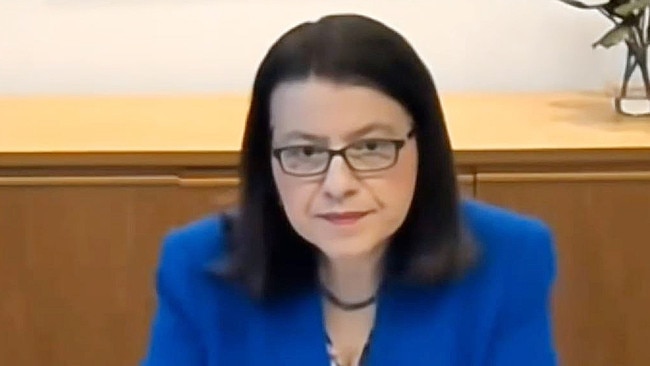
After the Premier gave his evidence to the inquiry on Friday one week ago, as we know, the following day, then health minister Jenny Mikakos abruptly resigned; not just from the ministry but parliament altogether. In her public statement she said that there were elements of the Premier’s testimony to the inquiry “that I strongly disagree with”.
It is untenable that after this statement Mikakos and Andrews were not immediately recalled by the inquiry and questioned over their evidence. Given what we know now, Police Minister Lisa Neville must also be recalled and her evidence carefully interrogated.
It is unacceptable that, to date, the Premier’s chief of staff has not given evidence into what she knew and when, and whether she had any contact – telephone, text, or via any other app, with Graham Ashton, Chris Eccles, Lisa Neville or the Premier during the crucial missing six minutes. She must give evidence and supply complete communications records.
In all of this, the credibility of the inquiry’s final report is at stake. It must provide a comprehensive explanation of decisions taken to substitute Victoria Police in quarantine hotels with poorly trained private security guards and to reject repeated offers of ADF support. It is a travesty for anyone who believes in accountability that we buy the line that somehow the decision to use private security was not a decision that any one individual made, but instead a “creeping assumption”; a collective decision.
In that six-minute period, only a very powerful decision-maker could have mollified a police chief and who that was must be uncovered. If nothing else, we owe 800 dead Victorians and their families the truth.
And we owe ourselves an honest government.
* Watch Peta Credlin on Sky News, weeknights at 6pm

